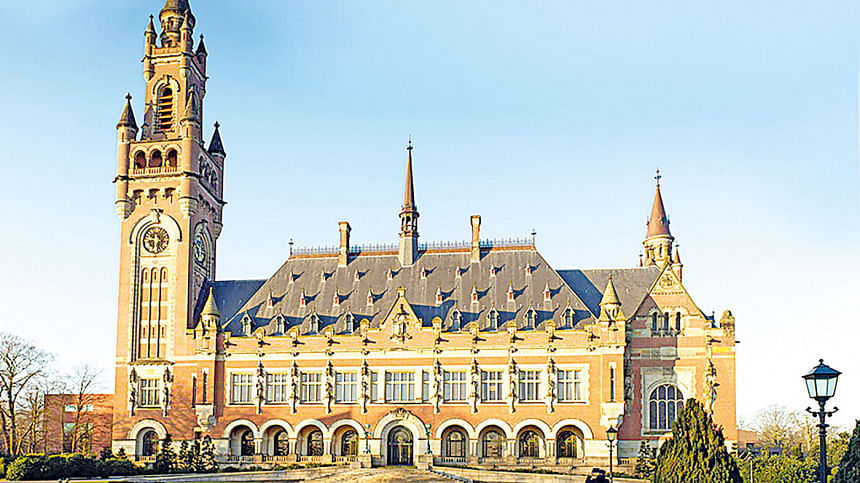Ukraine’s present case in the International Court of Justice

On 2 February 2024, the International Court of Justice (ICJ) delivered its judgment on the preliminary objections brought by the Russian Federation regarding jurisdiction and admissibility in the case filed by Ukraine concerning Russia's invasion in 2022.
Russia, who launched a full-scale invasion of Ukraine on 24 February 2022, attempted to justify the invasion through claiming that Ukraine was committing acts of genocide against Russian-speaking inhabitants within Luhansk and Donetsk oblasts. Ukraine subsequently filed an application in the ICJ arguing that Russia has no lawful basis to take action in and against Ukraine to prevent and punish any purported genocide under the 1948 Convention on the Prevention and Punishment of the Crime of Genocide, along with the contention that the allegations were false.
Previously, on 16 March 2022, the ICJ ruled that Russia must immediately suspend the military operations it commenced in Ukraine and called for both parties to refrain from any action that might aggravate or extend the dispute before the court or make it more challenging to resolve. However, in the verdict of the 2 February 2024, the ICJ ruled that the court does not have the jurisdiction to adjudge Russia's actions that Ukraine alleges. Instead, the ICJ will consider whether Ukraine has committed any violation of the convention. This comes as a real blow to the Ukrainian efforts to stop the Russian invasion and hold it accountable for the alleged genocidal acts.
Ukraine might still win the case, which will consequently imply that the Russian invasion was not justified. This might be historically significant, but it will not be enough in terms of reparation. It might be more beneficial for Ukraine to bring a fresh case against Russia for the genocidal acts allegedly being committed against the Ukrainian population.
The Russian Federation claimed that the allegations of Ukraine fall outside the scope of the Genocide Convention and thus, is not within the scope of the compromissory clause. According to them, in reality, giving an opinion about this matter would require the court to declare on matters of the recognition of the "Donetsk People's Republic" and the "Luhansk People's Republic" by Russia and the legality of the special military operation. This would require the invocation of the rules of international law relating to the recognition of states and the use of force, which are not incorporated within the Genocide Convention. On the other hand, Ukraine claimed that the Russian Federation acted in bad faith, and went beyond the convention's limits to prevent genocidal acts.
The ICJ was of the opinion that claims of alleged violation of a treaty are not sufficient to invoke its jurisdiction. Rather the court must also check whether the violations that are pleaded fall within the provisions of the treaty, i.e., the facts at issue if established will constitute violations of the obligations under the treaty in question. As such, the court held that even if the alleged acts of Russia that are complained of can be established, it would not constitute a violation of obligations under the Genocide Convention. Therefore, even if recognition of Donetsk and Luhansk and the launching of the special military operation are proved to be contrary to international law, they are not violations of the Genocide Convention.
Now, Ukraine may be burdened with the task of proving that they have not committed any genocidal acts in the Donbas region, in a proceeding instituted by themself. Ukraine might still win the case, which will consequently imply that the Russian invasion was not justified. This might be historically significant, but it will not be enough in terms of reparation. It might be more beneficial for Ukraine to bring a fresh case against Russia for the genocidal acts allegedly being committed against the Ukrainian population. Currently, the proceeding will be hardly of any use to deter Russian forces.
The writer teaches law at the Port City International University.

 For all latest news, follow The Daily Star's Google News channel.
For all latest news, follow The Daily Star's Google News channel. 



Comments